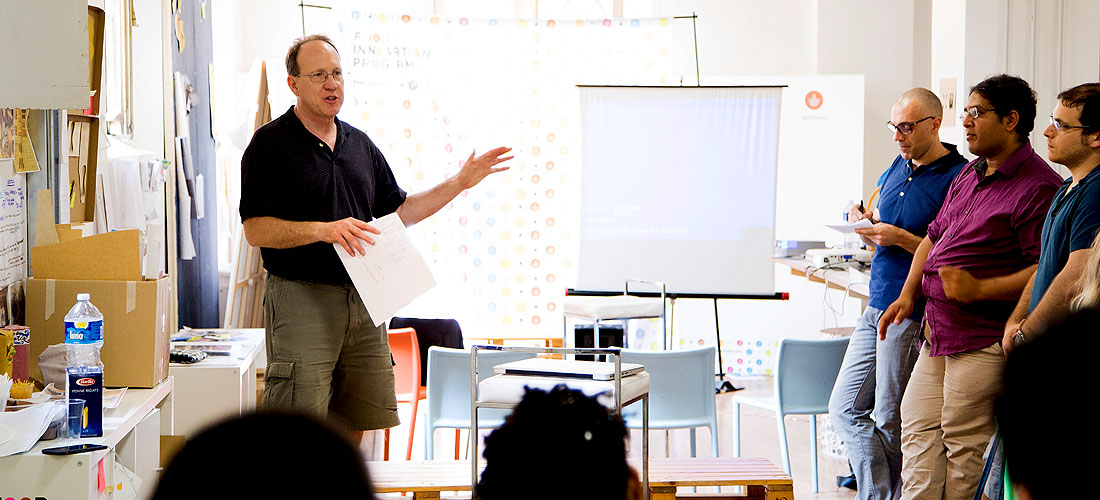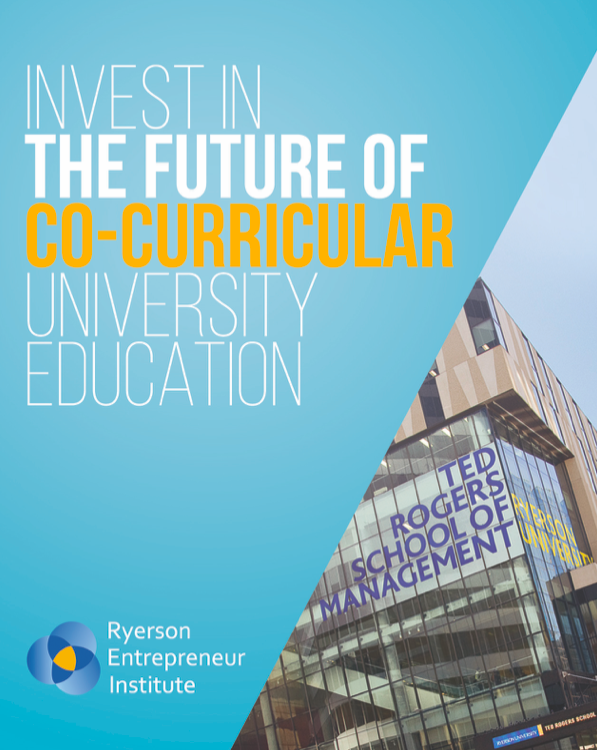Toronto Met ENTREPRENEUR INSTITUTE
Unleashing Entrepreneurial Action
A Word From Dr. Steve Gedeon
Chair, Toronto Met Entrepreneur Institute
Faculty Advisor, Enactus TMU
Associate Professor, Ted Rogers School of Management, Entrepreneurship & Strategy,
Toronto Metropolitan University, Toronto Canada
Despite the growth in entrepreneurship programs, there remain cries for big changes to the way entrepreneurship education is designed, implemented and assessed. The faculty at Toronto Metropolitan University (TMU) have been active in conferences and publishing double-blind peer-review academic journal articles to address this critical issue and these are used to support the thoughts shared on this website.
At TMEI, Entrepreneurship is about far more than just starting a new business. It involves being alert to what IS and spotting opportunities for what MIGHT or OUGHT to be. It involves proactively bringing about this positive change in the world by TAKING ACTION! It’s about overcoming obstacles or inertia and creating value through experimentation, iteration and continuous LEARNING.
Entrepreneurship is foundational to the human spirit – it applies to new startups, intrapreneurship, social innovation, changemaking and personal empowerment.

What is Entrepreneurship?
Entrepreneurship involves understanding what IS by being curious about not only the world around you, such as potential customers, but also yourself, and your values, beliefs and interests. It involves envisioning what MIGHT or OUGHT to BE by imagining a better product, a better career, a better community, or a better life. Spotting opportunities to add value to your life seldom happens by chance – it takes proactive analysis, brainstorming, prototyping and experimentation. Learning also doesn’t happen automatically – it takes a proactive process of self-reflection and feedback.
This holistic philosophy of entrepreneurship is fundamental to the human spirit! It’s not just a business discipline, but a different way of seeing, thinking and acting. It’s that spark that enabled humanity to harness fire, steam, sunlight and the atom as well as create social systems to enhance human welfare, dignity and prosperity. To create something new by spotting opportunities for a better future – to innovate and improve.


Best Practices
Best practices in determining what students should learn as a result of any educational program, start with the Kirkpatrick framework which specifies three categories of student learning:
- Knowledge (the Head) – this generally consists of facts, theories, methods, tools and other information that can be readily acquired and transferred between individuals. Knowledge must in general be falsifiable through scientific methods and reasoning, as opposed to unsubstantiated claims. Key entrepreneurial knowledge includes methods like Design Thinking, Business Model Canvas and Lean Startup.
- Skills or Competencies (the Hand) – these consist of abilities and proficiencies that are acquired primarily through specialized training or experience. Key entrepreneurial skills include active listening, teamwork, bootstrapping and hacking,
- Attitudes (the Heart) – these are the mindsets, beliefs, principles and values that drive a person’s thoughts, actions and feelings. Key entrepreneurial mindsets include curiosity, proactivity, empathy, resiliency, grit, optimism, hope, self-efficacy, authentic self-esteem and growth-orientation,
Four Primary Domains of Entrepreneurship
Starting a New Business
This is the traditional form of entrepreneurship normally taught in most universities. These new business entities stimulate the economy and account for virtually 100% of all new job growth in modern economies. This is the form of entrepreneurship mostly assumed by the media and popular press.
Intrapreneurship
Creating entrepreneurial value within an existing venture. Also termed Innovation or Corporate Entrepreneurship. Although a new corporate entity is not created and risk to the entrepreneur may be lower with no ownership, the entrepreneurial processes, skills, and attitudes are virtually identical.
Social Entrepreneurship
Creating primarily social or other forms of non-economic values. Also termed social innovation, change-making or active citizenry. This can involve community-building, starting a new entity (for-profit or non-profit) or creating change within an existing community, venture or institution.
Personal Empowerment
Creating new values through personal growth and transformation – by looking at yourself in an entrepreneurial way to create the best possible you. This involves self-leadership including self-awareness, self-direction, self-reflection, self-compassion, self-talk, self-motivation, self-efficacy, authentic self-esteem, time management, goal-setting and habit formation. Often this form of personal entrepreneurship must take place prior to the other forms – to change the world you first have to change yourself.
Best practices in entrepreneurship program design and co-curricular experiential learning for Entrepreneurship Educators
The Toronto Met Entrepreneur Institute (TMEI) leverages Canada’s largest business school and entrepreneurship program to spread a culture of entrepreneurship and empower those in need. Our goal is to unleash and support a values-driven culture of innovation, prosperity, and achievement by igniting and supporting a passion for entrepreneurship. TMEI is a global leader in sustainable co-curricular student engagement and experiential learning in entrepreneurship. It inspires and supports students and educators as they engage in transformative co-curricular projects.

Want to learn more?
Download our information package to learn more about the Toronto Met Entrepreneur Institute (Please note that our university has changed name to Toronto Metropolitan University and so REI has changed its name and will be changing its domain name).
Toronto Met Entrepreneur Institute
575 Bay Street (entrance at 55 Dundas West)
Room TRS 1-007
Toronto, ON M5G 2C5
Email us at info@ryersonentinstitute.org